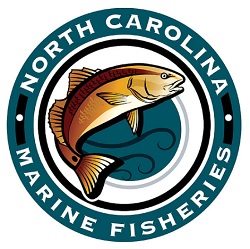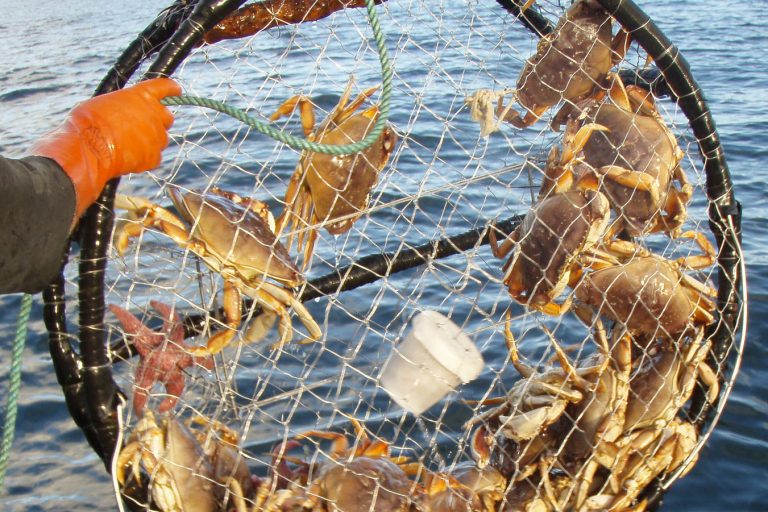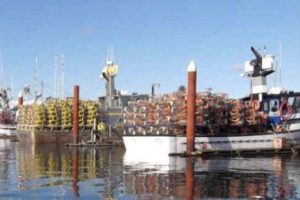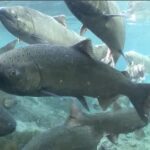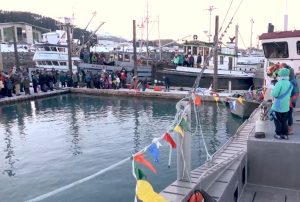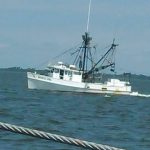Tag Archives: southern flounder
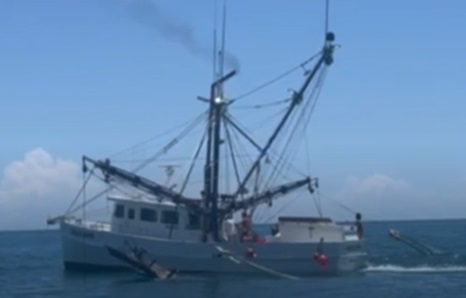
North Carolina: Debates over ending inshore trawling to protect marine life
For commercial fishermen like Thomas Smith, who works in the Pamlico Sound, shrimp trawling is essential for their livelihood. “Most of our income comes between July and November while working on inshore waters,” says Smith. He said that keeping shrimp trawling operations only in the ocean would only be viable for about two months each year, potentially devastating his business. “It would put me out of business,” he adds. Tim Gestwicki, CEO of the NCWF, supports ocean shrimp trawling but insists that inshore trawling must be stopped to protect juvenile fish species, such as the Southern flounder. “It’s time for us to catch up with the times and quit squandering our resources unnecessarily,” said Gestwicki. Video, more, >>CLICK TO READ<< 09:37
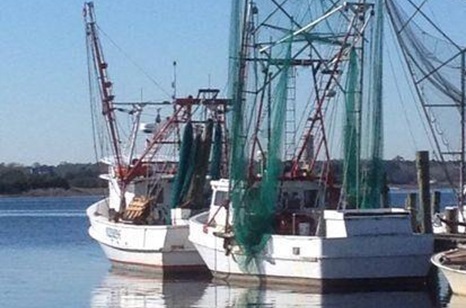
N.C. Wildlife Federation calls for inshore shrimp trawling ban, commercial fisheries lobbying group responds
N.C. Wildlife Federation CEO Tim Gestwicki called on state legislators Tuesday to “put a stop to inshore shrimp trawling as soon as possible.” In a news release, Gestwicki said the call is in response to the N.C. Division of Marine Fisheries canceling the recreational southern flounder season for 2024. Glenn Skinner, executive director of the N.C. Fisheries Association, a Morehead City-based trade and lobbying group for the state’s commercial fishermen, said Tuesday the wildlife federation is using the flounder season cancellation to scare fishermen and “build momentum” for its ongoing effort to ban shrimp trawling. The recreational fishermen exceeded the quota in 2023, he said, but commercial fishermen, who also had a short season, did not. more, >>CLICK TO READ<< 17:48
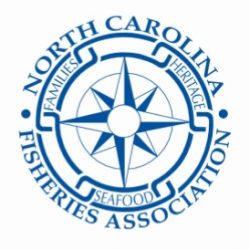
North Carolina Fisheries Association Weekly Update for October 02, 2023
Southern Flounder, Uncertain Baseline Data. This week I wanted to look at the data used for management of southern flounder in North Carolina, specifically recreational catch data. Catch data is supposed to be baseline information in the fisheries management process. It is supposed to tell us how many fish were caught each year and allow managers to set quotas based on the health of the fish stock. Accurate catch data is especially important when you are trying to rebuild a stock such as southern flounder. When trying to reduce the number of fish removed annually it is important to know how many fish were caught each year to compare that number with the fish caught the following year to see if you achieved your needed reduction. Simple math, right? >>click to read<< 14:56
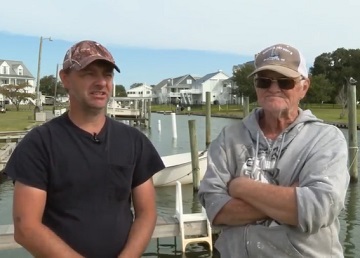
North Carolina: New quota cuts Southern flounder fishing off in one week, frustrating fishermen
Maurice Mann, a commercial fisherman, expressed his frustration. Maurice and his son Jasper Mann were geared up for a good season of flounder fishing, getting new nets and catching around 100 pounds of Eastern Carolina’s popular sea dwellers. After less than a week on the water, they found themselves thousands of dollars in the hole when their buyer told them the Division of Marine Fisheries said to reel it in. They were told the number of flounder they allowed to be caught commercially in September had already been met. Video, >click to read< 14:34

North Carolina Fisheries Association Weekly Update for June 6, 2022
The MFC voted on May 26th to continue with the gill net closure in the Neuse and Pamlico rivers and directed DMF to study the impacts of removing the gill nets as their preferred management option. But this time the reason for continuing the gill net closure was different. At the meeting, Commissioner Tom Roller said; “In saying that this is an allocation fight, you are right. So, when NCFA comes here and says there is no scientific evidence for removing gill nets, what they are saying is I want my allocation. Yeah, that’s exactly what it is. So, it’s an allocation by the retention of gill nets. Cause a dead fish is a dead fish, right? A dead fish is a dead fish and you have to ask what is the greater value to the economy? And in most cases, and many cases, not all cases, it’s recreational.” I’m confused. . >click to read<. To read all the updates >click here<, for older updates listed as NCFA >click here< 16:16

North Carolina Fisheries Association Weekly Update for May 30, 2022
Finally! An issue both the CCA and NCFA agree on. Do you believe in miracles? If not, you should. On May 25, at the meeting of the North Carolina Marine Fisheries Commission, David Sneed, Executive Director of the CCA NC, made the following statement during the public comment period. “On Southern Flounder, the recent recreational overages were the result of derby fishing brought about by insufficient management action from Amendment 2. Harvest and overage estimates that are provided by MRIP were never intended to be used to manage a fishery through a quota,,, Sound familiar? If you’re one of our regular readers it should. . >click to read<. To read all the updates >click here<, for older updates listed as NCFA >click here< 11:51
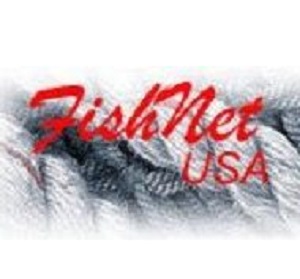
North Carolina Sports target commercial fisheries – example #3 in 2022

North Carolina: Decision on gill nets delayed, officials say more information is needed
No decision was made Thursday by the Marine Fisheries Commission on whether or not large mesh gill nets will be allowed in North Carolina. The decision was delayed because board members said they want more information. Commissioners are torn about two things, if these nets should be used above ferry lines and whether they should be phased out of southern flounder fishing. For many fishermen like Jerry Schill, commercial fishing with large mesh gill nets have been a way of life. He doesn’t want them to be banned. Video, >click to read< 08:41

North Carolina Fisheries Association Weekly Update for January 24, 2022
I hope everyone took the time to read the “Saga of Southern Flounder” article, from the North Carolina Wildlife Federation. If not please click the link below and read it for yourself before continuing to read my comments. After reading the Wildlife Federations article, I’m sure you were shocked by their strong claims of (mis)” management” bias towards the commercial fishery, failed commercial management, and harsh recreational reductions. Continue reading at the update. >Click here to read the Weekly Update<, to read all the updates >click here<, for older updates listed as NCFA >click here< 09:25

North Carolina Fisheries Association Weekly Update for January 17, 2022
The issue of Southern Flounder management, or mismanagement as some have claimed, has been a hot topic lately. Claims that commercial overharvest, imminent stock collapse, failed commercial harvest reductions, and inaction by the state are to blame for declining catches of Southern flounder are rampant. But are they true? If you asked the CCA or NC Wildlife Federation the answer would be yes but if you asked me, I’d say their claims are absurd and not supported, by the numbers. Continue reading at the update. >Click here to read the Weekly Update<, to read all the updates >click here<, for older updates listed as NCFA >click here< 10:33
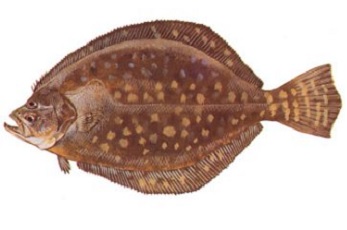
North Carolina: Southern flounder amendment going to advisory committees, DMF seeks comment
State fisheries managers are proposing more changes to southern flounder regulations to reduce flounder removals by 72%. The proposals include phasing out anchored, large mesh gill nets from the fishery. However, N.C. Division of Marine Fisheries staff want public and advisory committee input before they make any recommendations to the N.C. Marine Fisheries Commission. To continue reducing removals, the draft Amendment 3 contains a suite of additional proposed management options. Michael Loeffler said while phasing out the gill nets may reduce landings, the effect on both the economy and the fishery are uncertain. (I think we already know), >click to read< 15:00
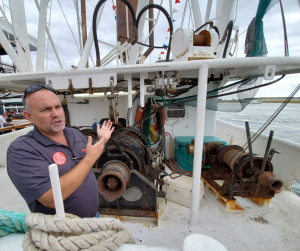
North Carolina: Proposal to regulate coastal fishing draws strong differences of opinion
A proposed coastal fishing regulation designed to protect species is drawing sharp differences of opinion from some of those affected. Some think the measure is necessary to prevent continued loss of important fish species. Others think the measure won’t work as intended and could prove catastrophic for coastal fishing industries. >click to read< 09:43
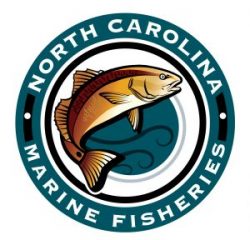
N.C. Marine Fisheries Commission votes to close flounder fishing
The N.C. Marine Fisheries Commission adopted the Southern Flounder Fishery Management Plan Amendment 2 as proposed by the Division of Marine Fisheries, giving the director of the Division of Marine Fisheries flexibility with the commercial and recreational seasons so long as they meet the statutorily required harvest reductions. The Division of Marine Fisheries anticipates issuing a proclamation next week that closes the commercial and recreational season around Sept. 4. >click to read< 12:21
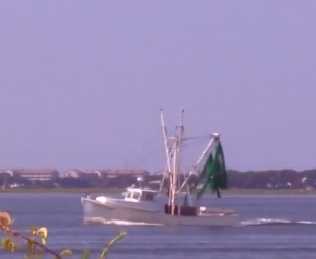
Proposed “Let Them Spawn” bill looks to further regulate NC fishermen
There’s a debate going on in our state right now concerning fishing. A new bill just passed the North Carolina House. It’s focused on certain species and how to regulate them. The bill looks at what you can keep and what you have to throw back. There are several fish this bill targets: Southern flounder, Spot, Atlantic Croaker, Kingfish, Striped Mullet, and Bluefish – all species lawmakers say have been declining for years.,,,The bill, known as the “Let Them Spawn” bill would require state fishery managers to set a minimum size limit to try and let 75% of these 6 species reproduce at least one time. >click to read<14:03
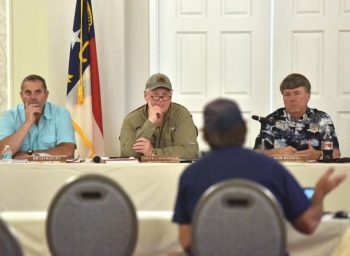
North Carolina: After public input, panel leans toward Southern flounder harvest reduction
State fisheries managers plan to reduce the harvest of southern flounder – commercial and recreational – by 62-72% to address problems with the spawning stock.,, met to select preferred management options for Southern Flounder Fishery Management Plan Amendment 2,,, N.C. Fisheries Association Executive Director Glenn Skinner said he’s been talking with commercial fishermen,,, “Their concern is when it will happen this year,” he said. “We’d ask you to do it in December. We need (the flounder harvest) this year. A lot of people still have hurricane damage. We need to be able to reinvest in the industry. Reductions have been made before (to the flounder harvest). They may not have been enough.”>click to read<09:26

North Carolina – Reforms would rebuild depleted fish stocks
A former director of the N.C. Division of Marine Fisheries asked a local wildlife group last week to seek state lawmakers’ support for three proposed fishing regulations aimed at rebuilding depleted fish stocks. Louis Daniel, who spent more than two decades with the N.C. Division of Marine Fisheries and was director of the division for 10 years, told the Albemarle Conservation and Wildlife Chapter in Elizabeth City Thursday that current regulations have not done enough to protect fish species such as southern flounder. >click to read<09:45

The Sting – Houston restaurants, fish markets cited for illegally purchasing game fish
Nineteen Houston-area restaurants and fish markets have racked up more than 150 citations after they were caught illegally purchasing game fish from undercover officers during a recently completed sting, officials announced Tuesday. A two-year operation conducted by the Texas Parks and Wildlife Department’s law enforcement division found that the restaurants and fish markets were willing to bypass legitimate commercial fish dealers and purchase saltwater fish in the black market. Those fish included sea trout, red drum (redfish), red snapper, Southern flounder, black drum, catfish and croaker. >click to read<18:21
Judge blocks closure of southern flounder fishing. Will it be appealed?
A Wake County Superior Court judge has issued an injunction preventing the 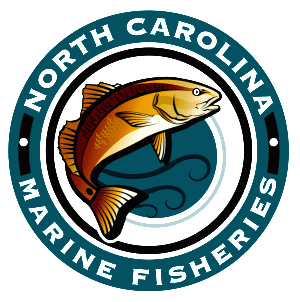 N.C. Marine Fisheries Commission from closing the entire southern flounder fishery from October 16 through January 1. During its November 2015 meeting at Jeanette’s Pier, the commission voted 6-3 to shut down both the commercial and recreational fisheries for southern flounder during the fourth quarter of 2016. A lawsuit was filed by the New Bern-based North Carolina Fisheries Association, the Carteret County Fishermen’s Association, as well as Dare, Hyde and Carteret counties, against the commission’s action, and resulted in a temporary restraining order being issued on Sept. 28. After two hours of testimony on Oct. 6 from attorneys representing the NCFA and the state, Superior Court Judge John Jolly, Jr. issued an order preventing the Division of Marine Fisheries from instituting the October 16 closure. When the MFC voted for the closure last year, interest groups from the commercial fishing industry, which were opposed to the ban, lined up against the recreation-oriented Coastal Conservation Association and Recreational Fishing Alliance. Read the story here 09:39
N.C. Marine Fisheries Commission from closing the entire southern flounder fishery from October 16 through January 1. During its November 2015 meeting at Jeanette’s Pier, the commission voted 6-3 to shut down both the commercial and recreational fisheries for southern flounder during the fourth quarter of 2016. A lawsuit was filed by the New Bern-based North Carolina Fisheries Association, the Carteret County Fishermen’s Association, as well as Dare, Hyde and Carteret counties, against the commission’s action, and resulted in a temporary restraining order being issued on Sept. 28. After two hours of testimony on Oct. 6 from attorneys representing the NCFA and the state, Superior Court Judge John Jolly, Jr. issued an order preventing the Division of Marine Fisheries from instituting the October 16 closure. When the MFC voted for the closure last year, interest groups from the commercial fishing industry, which were opposed to the ban, lined up against the recreation-oriented Coastal Conservation Association and Recreational Fishing Alliance. Read the story here 09:39
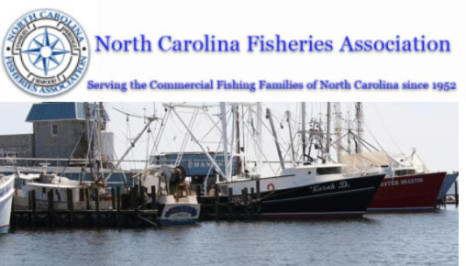
BREAKING NEWS From North Carolina Fisheries Association – JUDGE RULES IN OUR FAVOR!!!
North Carolina Counties and fishermen’s associations file lawsuit over flounder supplement
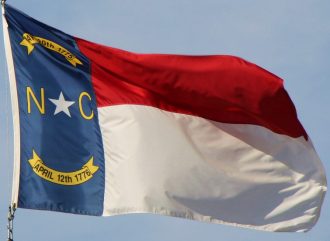 Several coastal counties have joined with commercial fishermen in litigation against the State of North Carolina regarding last year’s decision by the Marine Fisheries Commission to adopt new regulations on the southern flounder fishery by using the “Supplement” process. The complaint was filed on Sept. 23 in Carteret County Superior Civil Court in Beaufort. The plaintiffs include NCFA Inc., the Carteret County Fisherman’s Association Inc., Carteret County, Dare County and Hyde County. Defendants served with the complaint are the secretary of the N.C. Department of Environmental Quality, the director of the N.C. Division of Marine Fisheries and all members of the N.C. Marine Fisheries Commission. The practical effect of the litigation is to stop the closure of the recreational and commercial southern flounder fisheries, scheduled to take effect this fall. Read the story here 08:53
Several coastal counties have joined with commercial fishermen in litigation against the State of North Carolina regarding last year’s decision by the Marine Fisheries Commission to adopt new regulations on the southern flounder fishery by using the “Supplement” process. The complaint was filed on Sept. 23 in Carteret County Superior Civil Court in Beaufort. The plaintiffs include NCFA Inc., the Carteret County Fisherman’s Association Inc., Carteret County, Dare County and Hyde County. Defendants served with the complaint are the secretary of the N.C. Department of Environmental Quality, the director of the N.C. Division of Marine Fisheries and all members of the N.C. Marine Fisheries Commission. The practical effect of the litigation is to stop the closure of the recreational and commercial southern flounder fisheries, scheduled to take effect this fall. Read the story here 08:53
New Southern Flounder restrictions came from acrimonious debate
 New restrictions on catching southern flounder that go into effect in North Carolina on Friday were the product of an acrimonious debate. Local media outlets report that conservationists and people who fish recreationally are generally in favor of the rules, which they say are meant to reduce the number of fish caught and replenish the population of the fish. Commercial fishermen oppose the restrictions, saying fears about the flounder population are unfounded. Read the article here 12:15
New restrictions on catching southern flounder that go into effect in North Carolina on Friday were the product of an acrimonious debate. Local media outlets report that conservationists and people who fish recreationally are generally in favor of the rules, which they say are meant to reduce the number of fish caught and replenish the population of the fish. Commercial fishermen oppose the restrictions, saying fears about the flounder population are unfounded. Read the article here 12:15
Waters still rough after new flounder limits
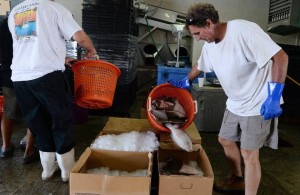 New restrictions on southern flounder stoke showdown between commercial, recreational fishing and conservationists. Neither side can agree on the science; dispute is over whether flounder is over-fished. Politicians keeping a close eye on the controversy. Lawsuits or legislation could follow. All that anyone agrees on in the politically charged controversy over southern flounder is that new regulations that go into effect Friday will reduce the number of fish that are caught. Read the article here 17:27
New restrictions on southern flounder stoke showdown between commercial, recreational fishing and conservationists. Neither side can agree on the science; dispute is over whether flounder is over-fished. Politicians keeping a close eye on the controversy. Lawsuits or legislation could follow. All that anyone agrees on in the politically charged controversy over southern flounder is that new regulations that go into effect Friday will reduce the number of fish that are caught. Read the article here 17:27
North Carolina Marine Fisheries Commission places emergency limits on Southern Flounder
After five hours of motions, amendments and haggling over details, the  approved an emergency measure Thursday that will close down most fishing for southern flounder in the state’s sounds after Oct. 16. The restrictions, which are aimed at allowing larger numbers of fish to migrate into the ocean to reach spawning age, were deemed necessary by the Division of Marine Fisheries even though the usefulness of a 2014 stock assessment was challenged by a peer review. Here is what the commission settled on: Read the article here 15:31
approved an emergency measure Thursday that will close down most fishing for southern flounder in the state’s sounds after Oct. 16. The restrictions, which are aimed at allowing larger numbers of fish to migrate into the ocean to reach spawning age, were deemed necessary by the Division of Marine Fisheries even though the usefulness of a 2014 stock assessment was challenged by a peer review. Here is what the commission settled on: Read the article here 15:31
N.C. Marine Fisheries Commission to take action on southern flounder supplement
 According to a release from the N.C. Division of Marine Fisheries, the state agency that enforces marine fisheries rules and conducts fisheries research, the MFC is scheduled to select and approve management measures for supplement A to the southern flounder fishery management plan (FMP) Amendment 1. The proposed supplement, and the MFC’s use of the supplement process, has drawn both support and opposition. A recent release from the N.C. Fisheries Association, a nonprofit supporting the seafood industry, criticizes the proposed supplement. Read the rest here 15:35
According to a release from the N.C. Division of Marine Fisheries, the state agency that enforces marine fisheries rules and conducts fisheries research, the MFC is scheduled to select and approve management measures for supplement A to the southern flounder fishery management plan (FMP) Amendment 1. The proposed supplement, and the MFC’s use of the supplement process, has drawn both support and opposition. A recent release from the N.C. Fisheries Association, a nonprofit supporting the seafood industry, criticizes the proposed supplement. Read the rest here 15:35
Net Effect: The fight over flounder
David Sneed is executive director of the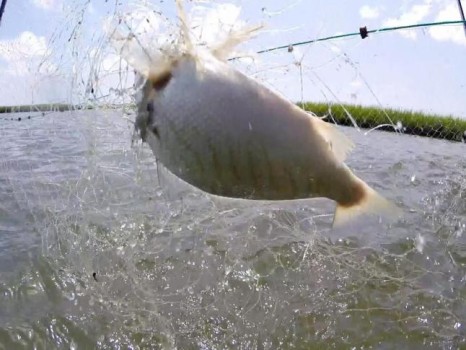 , the main group representing recreational fishermen. He says commercial fishermen have blocked attempts to reduce the use of gill nets. “The science has been there to say, ‘Hey, we need to pull back on this. We’re over-harvesting these fish,’ but the push has always been there to say, ‘No, we need to catch more fish, you know, we need to be able to make money off of this resource.’” But Jerry Schill, executive director of the NC Fisheries Association, the main group representing commercial fishermen, says the flounder fishery is not being overharvested. Read the rest here 09:19
, the main group representing recreational fishermen. He says commercial fishermen have blocked attempts to reduce the use of gill nets. “The science has been there to say, ‘Hey, we need to pull back on this. We’re over-harvesting these fish,’ but the push has always been there to say, ‘No, we need to catch more fish, you know, we need to be able to make money off of this resource.’” But Jerry Schill, executive director of the NC Fisheries Association, the main group representing commercial fishermen, says the flounder fishery is not being overharvested. Read the rest here 09:19
Commercial, recreational flounder fishermen at odds
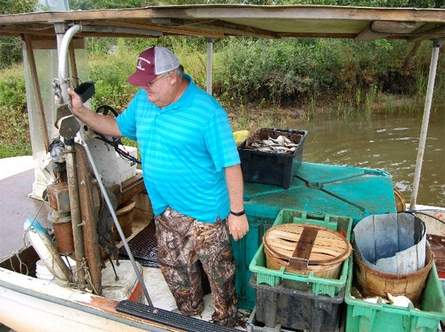 Two months have passed since the state’s Marine Fisheries Commission was supposed to approve new protections for flounder, but fishermen are still catching them under the same rules. A fight between commercial and recreational fishermen has stymied discussion, with commissioners disagreeing over even the rules for holding meetings. Though some commissioners say a change is urgently needed to help the fish, the group will not meet until Nov. 18. “We won’t be really able to impact southern flounder until September of 2016,” Read the rest here 12:55
Two months have passed since the state’s Marine Fisheries Commission was supposed to approve new protections for flounder, but fishermen are still catching them under the same rules. A fight between commercial and recreational fishermen has stymied discussion, with commissioners disagreeing over even the rules for holding meetings. Though some commissioners say a change is urgently needed to help the fish, the group will not meet until Nov. 18. “We won’t be really able to impact southern flounder until September of 2016,” Read the rest here 12:55
Fisheries commission delays vote on southern flounder and Sammy don’t like it!
 The Coastal Conservation Association of North Carolina has written to the commission chairman, Sammy Corbett, saying it is “infuriated” at his decision not to take up the topic until the next scheduled meeting, in mid-November. In August, Corbett said a special meeting would be held in September to consider the restrictions. “This is not your commission, but a governor-appointed body that includes diverse interests, tasked with the duty to safeguard and manage public fisheries resources for all of the citizens of North Carolina,” Bud Abbott, the organization’s president, wrote. Read the rest here 19:59
The Coastal Conservation Association of North Carolina has written to the commission chairman, Sammy Corbett, saying it is “infuriated” at his decision not to take up the topic until the next scheduled meeting, in mid-November. In August, Corbett said a special meeting would be held in September to consider the restrictions. “This is not your commission, but a governor-appointed body that includes diverse interests, tasked with the duty to safeguard and manage public fisheries resources for all of the citizens of North Carolina,” Bud Abbott, the organization’s president, wrote. Read the rest here 19:59
Southern Flounder – Disputed fisheries studies: Politics or inexact science?
 Science plays a big role in managing fisheries. Scientists assess fish stocks, migration patterns, environmental issues — useful data that allow regulators to set policy. We expect our science to be accurate and unaffected by politics, and as citizens, we expect political actors to treat science in the same manner.,, Yet a series of e-mails found their way into the public domain from a 2007 round-robin discussion among several N.C. Division of Marine Fisheries scientists trying to peg a mortality rate for speckled seatrout caught by recreational anglers. See video It would take a few hundred words to demonstrate where science goes off the rails and how other factors, including interest group reactions, exert an influence on what is expected to be an unbiased, fact-driven process. Read the rest here 10:30
Science plays a big role in managing fisheries. Scientists assess fish stocks, migration patterns, environmental issues — useful data that allow regulators to set policy. We expect our science to be accurate and unaffected by politics, and as citizens, we expect political actors to treat science in the same manner.,, Yet a series of e-mails found their way into the public domain from a 2007 round-robin discussion among several N.C. Division of Marine Fisheries scientists trying to peg a mortality rate for speckled seatrout caught by recreational anglers. See video It would take a few hundred words to demonstrate where science goes off the rails and how other factors, including interest group reactions, exert an influence on what is expected to be an unbiased, fact-driven process. Read the rest here 10:30






